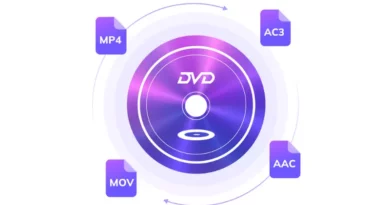Boost Your Hiring Process with the Recruitment Agency Software
The recruitment process plays a critical role in the success of any organization. However, manual recruitment procedures can be time-consuming, resource-intensive, and prone to errors. This is where recruitment agency software comes into play. Recruitment agency software, also known as applicant tracking systems (ATS) for agencies, offers a comprehensive solution to streamline and enhance the hiring process. This article will explore the benefits and functionalities of hr software recruitment and how it can boost your hiring process.
Key Features and Functionalities of Recruitment Agency Software
It comes with various features and functionalities that help streamline and optimize the hiring process. Here are some key features and functionalities commonly found in recruitment software:
Job Posting and Advertisement Management:
The software allows recruiters to create and manage job postings across multiple platforms, such as job boards, social media, and company websites. It provides templates and tools to customize job descriptions and manage the application process.
Resume Screening and Parsing:
Recruitment agency software uses advanced algorithms and AI-powered technologies to screen, and parse resumes automatically. It helps identify qualified candidates based on predefined criteria, keywords, and qualifications, saving time and effort for recruiters.
Candidate Database and Profile Management:
The software enables recruiters to store and manage candidate profiles in a centralized database. It allows for easy searching, filtering, and sorting of candidate information, making tracking and organizing applicant data convenient.
Interview Scheduling and Collaboration:
Applicant tracking system software facilitates interview scheduling by providing tools to send invitations, manage calendars, and automate reminders. It allows for seamless collaboration among hiring team members, enabling them to share feedback, evaluate candidates, and make informed decisions.
Analytics and Reporting:
The software generates detailed analytics and reports on various recruitment metrics, such as time-to-hire, source of applicants, and applicant-to-hire ratios. It provides valuable insights to measure the effectiveness of recruitment strategies and make data-driven decisions.
Candidate Relationship Management (CRM):
Recruitment agency software includes CRM functionality to track candidate interactions, communication history, and engagement. It helps build and maintain relationships with candidates, ensuring personalized and meaningful interactions throughout the hiring process.
Onboarding and Offer Management:
Some software offers features for managing the onboarding process and generating offer letters. It simplifies the paperwork involved in hiring and ensures a smooth transition for new hires.
Integration with Job Boards and Social Media:
Applicant tracking systems integrates with popular job boards and social media platforms, allowing recruiters to post jobs and search for candidates directly from the software interface. It expands the reach and visibility of job postings and enhances candidate sourcing capabilities.
Automation and Workflow Management:
It automates repetitive tasks and workflows, such as sending personalized emails, generating reports, and updating candidate statuses. It improves efficiency, reduces manual errors, and allows recruiters to focus on strategic aspects of the hiring process.
Compliance and Equal Opportunity Hiring:
Many recruitment agency software solutions include features to ensure compliance with legal and regulatory requirements, such as equal opportunity hiring practices. It helps prevent bias and discrimination in recruitment, promoting fairness and diversity.
The recruitment process is crucial in optimizing hiring and improving overall efficiency. Here are several ways in which recruitment agency software can help optimize the hiring process:
Simplifying Job Requirements and Qualification Matching:
It allows recruiters to define job requirements and qualifications upfront. This helps filter out unqualified candidates, ensuring that only the most suitable applicants are considered for further evaluation.
Enhancing Candidate Screening and Selection:
With advanced resume screening and parsing capabilities, recruitment agency software automates the initial screening process. It scans resumes for keywords, skills, and qualifications, saving recruiters significant time and effort. This ensures that only qualified candidates move forward in the hiring process.
Improving Candidate Experience and Engagement:
Recruitment agency software provides a user-friendly interface for candidates to apply for positions, upload resumes, and track their application status. It offers automated email notifications and personalized communication, keeping candidates engaged and informed.
Streamlining Hiring Team Collaboration:
The software enables seamless collaboration among hiring team members. Recruiters can share candidate profiles, interview feedback, and evaluation notes within the software, facilitating efficient decision-making and reducing communication gaps.
Ensuring Compliance and Equal Opportunity Hiring:
This automation software helps to maintain compliance with legal and regulatory requirements. It ensures that the hiring process adheres to equal opportunity practices, minimizing the risk of bias and discrimination. The software also provides audit trails and documentation to support compliance efforts.
Efficient Interview Management:
It offers features for scheduling interviews, sending automated reminders, and coordinating availability among multiple stakeholders. It streamlines the interview process and eliminates scheduling conflicts, enabling timely and organized interviews.
Comprehensive Reporting and Analytics:
Recruitment agency software generates insightful reports and analytics on various recruitment metrics. This includes time-to-fill, source of hire, applicant tracking, and more. Recruiters can analyze these metrics to identify bottlenecks, optimize sourcing strategies, and make data-driven decisions.
Centralized Candidate Database:
The software provides a centralized database to store candidate information, resumes, and application data. Recruiters can easily search, filter, and retrieve candidate profiles, saving time and improving efficiency in candidate management.
Automation of Routine Tasks:
HR recruiting software automates repetitive tasks such as sending personalized emails, updating candidate statuses, and generating reports. This reduces manual effort, minimizes errors, and allows recruiters to focus on higher-value activities.
Integration with External Platforms:
Many recruitment agency software solutions integrate with external platforms such as job boards, social media sites, and background screening services. This integration expands the reach of job postings, simplifies candidate sourcing, and enhances the overall recruitment process.
Conclusion
Recruitment agency software has revolutionized the way organizations approach the hiring process. This software significantly enhances hiring efficiency, effectiveness, and accuracy by leveraging the power of automation, data analytics, and collaboration.
It simplifies job posting, candidate sourcing, resume screening, interview scheduling, and communication, ultimately leading to faster and more successful hiring outcomes. As organizations face increasing competition for top talent, implementing the right recruitment agency software becomes crucial for staying ahead.
By embracing this technology and optimizing the hiring process, businesses can streamline recruitment efforts, attract the best candidates, and build a talented workforce that drives success. So, leap and boost your hiring process with recruitment agency software today.



